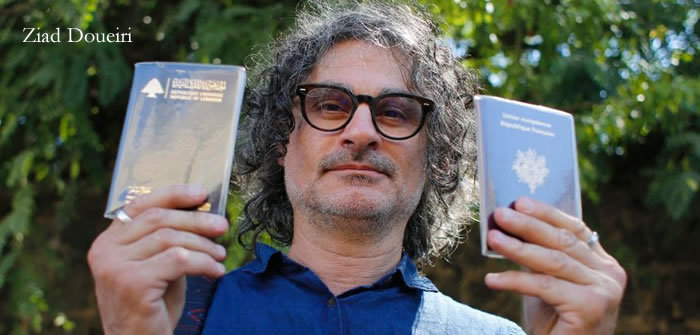 A native New Yorker, John Kochman lived in Paris for 25 years before becoming Executive Direcor of Unifrance USA. John was Head of International Sales at MK2 Productions from 1990-1995, and Deputy Head of International Sales at StudioCanal from1995-2006.
A native New Yorker, John Kochman lived in Paris for 25 years before becoming Executive Direcor of Unifrance USA. John was Head of International Sales at MK2 Productions from 1990-1995, and Deputy Head of International Sales at StudioCanal from1995-2006.
He has had extensive experience selling European and American film rights to distributors in the US and around the world.
Bijan Tehrani: John, please tell me briefly about the background of the French Film Office.
John Kochman: Unifrance USA has been in existence for about 40 years. Unifrance is headquartered in Paris, it’s an association of about 600 film professionals, producers, exporters, agents, representatives from the artistic community – the idea is to give financial, promotional and logistical support to distributors and film festivals who showcase contemporary French cinema.
Bijan: How successful has this been? When did it actually start and how successful was it initially?
John: Well, the US market has always been a key market for the French not least because French cinema has had a long 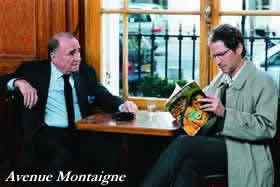 history of commercial and critical success here, so I think Unifrance’s well established presence in America speaks volumes about the industry’s ongoing commitment to the US market, both in good times and bad!
history of commercial and critical success here, so I think Unifrance’s well established presence in America speaks volumes about the industry’s ongoing commitment to the US market, both in good times and bad!
Bijan: When the first French Film Office opened…
John: In the 60’s, yes.
Bijan: From what I get from talking to the film directors in France there is a new movement in a way in French 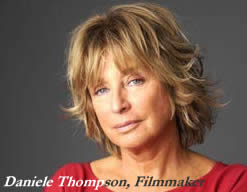 cinema that is in a totally different direction from that of the New Wave in the 50’s and 60’s. This new movement goes after new ideas but also, filmmakers are trying to make entertaining movies.
cinema that is in a totally different direction from that of the New Wave in the 50’s and 60’s. This new movement goes after new ideas but also, filmmakers are trying to make entertaining movies.
John: The New Wave really put French cinema on the international map, but that legacy has become something of a curse, too! Just mention French cinema today and you’re likely to hear something nostalgic, about la nouvelle vague. I don’t pick up much nostalgia about American cinema in the 60’s and 70’s, which to me is odd, because that was also a very exciting period of filmmaking in this country. So I think today’s French cinema needs to free itself from this perception that it is in some way linked to, or a direct descendant of, the New Wave, which of course it isn’t. Most movies made in France have always been mainstream fare and sold at home the same way American movies are sold, with perhaps fewer resources . And French movies do really well at home – about half the French box office last year. I’ll bet not many moviegoers outside of France know that. What’s new today is that many of these very well made, entertaining movies by some very talented young directors are finding new audiences abroad, even a little in the US. This generation also has its share of  innovative, more personal filmmakers, but it’s the the mix of French genres being seen abroad that’s new, and I think that’s very exciting.
innovative, more personal filmmakers, but it’s the the mix of French genres being seen abroad that’s new, and I think that’s very exciting.
Bijan: One movie that I really loved was Avenue Montagne by Danielle Thompson— I’ve seen it twice! It’s beautiful and has all the elements of a very entertaining movie. Besides that, it’s about people and a deep look at the human relationship with art and it is fantastic. I think that if French films try to exactly copy American movies 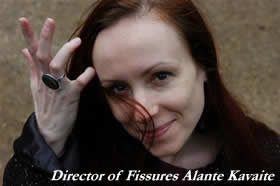 it won’t work and I think what makes French cinema stand tall today is that movies like Avenue Montagne are still entertaining and contain many elements of human emotion, which is missed in many American movies.
it won’t work and I think what makes French cinema stand tall today is that movies like Avenue Montagne are still entertaining and contain many elements of human emotion, which is missed in many American movies.
John: You’re right, in France people love to see movies about relationships, real people and real emotions, and so in a French movie you’ll probably get, you know, not just the good but the frankly not so good aspects of a relationship, too. A French filmmaker works with a minimum of outside interference from producers, marketing executives, lawyers and the like, so you often end up with films that have an unmistakeable human quality to them. Danielle Thompson happens to be an extremely talented screenwriter and she writes very smart dialogue, her movies say something about people in a very entertaining, worldly yet positive way. I think she’d be successful  wherever she worked.
wherever she worked.
Bijan: Is there any chance of French films, like the ones mentioned, getting good distribution; to get them to more theaters instead of just one or two in each major city?
John: Avenue Montaigne has one the US’s smartest distributors, ThinkFilm, handling the release. If a wide audience is out there for this movie, ThinkFilm is going to find it, and exploit it. The obstacles facing any foreign language film are immense. It requires a huge investment, both financial and intellectual, to reach a foreign 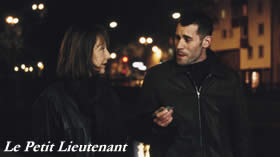 language film’s audience.
language film’s audience.
Bijan: Has the old idea of dubbing to English been thought of recently? We did research about foreign movies and our study shows that about almost 50% of the people complained about not being able to follow subtitles and they would have loved to see the movie in English.
John: Well, this is a debate that’s been going on forever. There have been very many, many attempts by American distributors to release dubbed movies. Very few have ever worked. American audiences resist subtitles and it’s almost as if they can smell a dubbed movie! 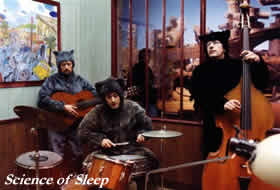
Bijan: I personally cannot watch a dubbed movie.
John: I can’t, either. A wall goes up between me and the screen.
Bijan: It’s as disappointing as going to Les Champs-Elysees and finding everyone speaking English! (laughs)
John: Exactly! (laughs) But in France, in Germany, in Italy, and in Spain, people have been watching dubbed versions of American movies forever, and they insist on it.
Bijan: Yeah. I know in Germany that dubbed films are very successful. There is one other issue that I was thinking about: You mentioned once that you had plans of bringing French film directors here with an arrangement of them having meetings here…
John: Yes, the Rendezvous?
Bijan: Yes. 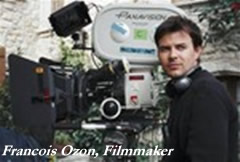 John: Every year Unifrance and the Film Society of Lincoln Center put on Rendezvous with French Cinema, in New York. This year, from the 28th of February to the 11th of March there will be 17 films shown at the Walter Reed Theater the IFC Center. We bring in directors and actors, and we arrange press interviews for them. French sales agents and producers come in for meetings with American distributors and agents. It’s an important event for anyone involved in French film, from filmgoers to industry professionals.
John: Every year Unifrance and the Film Society of Lincoln Center put on Rendezvous with French Cinema, in New York. This year, from the 28th of February to the 11th of March there will be 17 films shown at the Walter Reed Theater the IFC Center. We bring in directors and actors, and we arrange press interviews for them. French sales agents and producers come in for meetings with American distributors and agents. It’s an important event for anyone involved in French film, from filmgoers to industry professionals.
Bijan: Will you guys be having the same kind of event in Los Angeles?
John: Yes, the City of Lights City of Angels Festival in April presents a similar range of films. The French Consulate in Los Angeles and the DGA are instrumental in organizing this very popular event. We take advantage these events by giving priority to films that have already been sold to the US and which haven’t been released yet, so that distributors ![]() can put their directors to work promoting the films while they’re here
can put their directors to work promoting the films while they’re here
Bijan: How many French movies were distributed in the US during 2006?
John: 29, not including minority French co-productions. The number is generally pretty stable, between 20 and 30 films per year. However, the box office 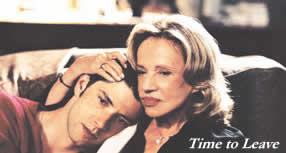 average per film is in steady decline. This is true for all non English language films released in the US. With such a small market share, it doesn’t take much of a drop in box office to affect a film’s chances of profitability.
average per film is in steady decline. This is true for all non English language films released in the US. With such a small market share, it doesn’t take much of a drop in box office to affect a film’s chances of profitability.
Bijan: How are the DVD sales of French films?
John: That depends on the film. Some films do extremely well; The March of the Penguins , for instance. Many classic titles keep turning over. Films that do well theatrically will do comparatively well on DVD. We’re exploring distribution opportunities in DVD and also in emerging media that we believe will benefit French films significantly.
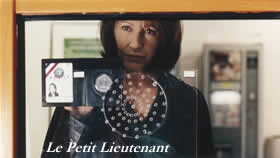 Bijan: Is there any direct to video work being done?
Bijan: Is there any direct to video work being done?
John: It’s not significant. This market is not well suited to foreign language.
Bijan: What about co-productions with the US?
John: There is no official treaty. You know, if an American independent or studio production has the financing, it can call upon any number of state funded agencies to help with locations, casting, studios, even finding a French co-producer!
Bijan: You mentioned independent filmmakers; Have there been any efforts —not only for a US project with a story that requires shooting in France— to push a project in which French filmmakers would cooperate with American filmmakers?
John: To shoot in the US?
Bijan: Yeah
John: That’s a good question. I think there has always existed a desire to reach out to American producers to partner on films to be shot in the US. Some of the agencies I just mentioned are discussing ways to reciprocate with their American counterparts – the state film commissions – to help make this happen.
agencies I just mentioned are discussing ways to reciprocate with their American counterparts – the state film commissions – to help make this happen.
Bijan: That’s an excellent idea!
John: I think so too!
Bijan: I think that American cinema needs some fresh ideas because people are starting to get bored of all the special-effect movies…
John: Well, it’s truly a global world today. You see directors and actors from everywhere, making films everywhere! The boundaries have really come down.
Bijan: My next question is how your organization and also the French producers in general have been using the opportunities that have risen with the internet to promote French cinema.
John: We spend a lot of time thinking about how best to take advantage of the internet. We have expanded our contacts with internet reviewers and bloggers. Our distribution partners are always increasing their advertising and editorial presence on the internet. There’s a lot of noise out there, so it’s a challenge to get yourself heard. The younger audience, an audience we’re trying very hard to attract, lives out there.
Bijan: Yeah, that’s where the younger audience is.
John: Yes!
Bijan: That’s great. Thank you.
We announce names of the movies and film directors attending Rendezvous and City of Lights City of Angels Festival events soon.
Cinema Without Borders

